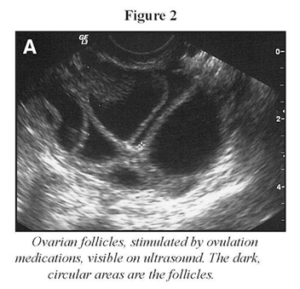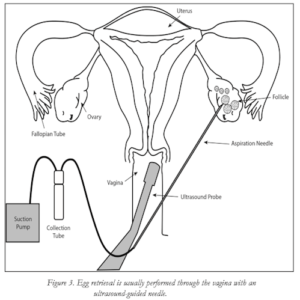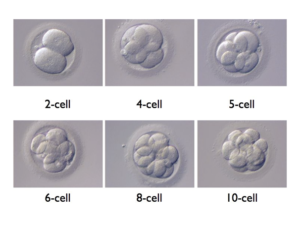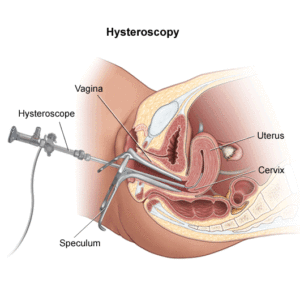In-Vitro Fertilization
IVF or In-Vitro Fertilization is one of the Assisted Reproductive Techniques, which involves fertilizing the eggs with sperm in a laboratory culture dish.
Who needs IVF?
We recommend IVF to couples that have been diagnosed with any one of the following issues:
● If you have had problems conceiving because your fallopian tubes are blocked
● If you have taken fertility drugs or tried fertility treatment and it has been unsuccessful
● Your partner has fertility problems but not that severe to require intra-cytoplasmic sperm injection (ICSI)
● If you are less than 40 and your ovaries fail to release eggs regularly or generate hormone estrogen then you may be suffering from Premature Ovarian Failure
● Fibroids, which are primarily benign tumors in the wall of the uterus is quite common among women in their 30s and 40s
● The couple has been trying to conceive for more than two years and the reason couldn’t be determined for the delay in pregnancy
How to prepare for IVF?
Preliminary tests need to be conducted before starting the IVF procedure. Your partner and you need to undergo a couple of screenings:
Ovarian Reserve: To test the quantity and quality of your eggs, we test the level of follicle-stimulating hormone (FSH), antimullerian hormone and estradiol in the first few days of your menstrual cycle. Test results along with ultrasound help us to analyze on how the fertility medicine will react on your ovaries.
Infectious Disease: We conduct a screening for various infectious diseases including HIV on your partner and you.
Mock Embryo Transfer: We perform a mock embryo transfer to understand the depth of the uterine cavity and will the technique be successful once the embryos are placed into your uterus.
Why you need counseling?
Counseling is an important part of being prepared for IVF. This is a life-changing step in your life and therefore you need to be prepared emotionally, physically and mentally for this procedure. We run you through the procedure and if you have any queries, doubts or concerns we try and address them in the best possible manner. Through counseling you get an opportunity to prepare for the procedure in a positive manner.
The Steps In Vitro Fertilization
There are a number of steps involved in IVF and we would like you to gain a better understanding of each of the step so that you are completely aware of the procedure.
Ovarian Stimulation
Each month, the ovaries release one egg, however, multiple eggs are required, as some eggs may not get fertilized or develop properly post fertilization.

Fertility drugs and injections are required to stimulate multiple eggs. The medicine is a combination of follicle-stimulating hormone and luteinizing hormone. To ensure controlled growth of follicles and monitor ovarian stimulation, transvaginal ultrasound and estradiol levels are checked.
A minimum of 8 to 14 days is required for the stimulation. Women respond to fertility drugs in different ways, and therefore we take special care in monitoring your progress during this duration. After a period of 8 to 14 days, we will do an ultrasound test for you to check if the follicles are prepared for egg retrieval and if they are, we will prescribe medications to ensure your eggs get matured.
Egg Retrieval
After 14 days of ovarian stimulation, we need you to undergo ultrasound and blood tests to figure out if your eggs are matured and ready for retrieval. To ensure you experience minimal discomfort, we will give you sedatives at the onset of the egg retrieval procedure. Transvaginal Ultrasound Aspiration, a minor procedure, where the eggs are taken out from the follicles via a needle connected to an ultrasound scan probe.

Multiple eggs can be extracted from the follicles in less than 30 minutes. You may get cramps on the day of retrieval; however, this pain subsides by the next day. Since the ovaries remain enlarged, the feeling of fullness may last for a couple of weeks.
Sperm Retrieval
While you are undergoing the egg retrieval procedure, your partner needs to provide semen sample through masturbation. If due to any kind of obstruction, sperm can also be removed through testicular aspiration, a minor surgical procedure to obtain sperm from the testicle.
Fertilization
Fertilization can be achieved through Insemination and ICSI. Under insemination sperm is mixed with mature eggs and incubated overnight. Under ICSI (Intracytoplasmic sperm injection), a single sperm is injected into each of the mature eggs. The chances of matured eggs getting fertilized is about 65 to 75%. 48 hours after the egg retrieval, the fertilized egg gets divided into cells, which is called an embryo.

An embryo is divided into a unit of six to 10 cells by the third day and on the fifth day, a cavity is formed and the placenta starts to separate from fetal tissues. Fifth day onwards the embryos are also called blastocysts.
Transferring the Embryo

Embryo transfer is performed through the cervix
The embryos can be transferred into your uterus between the first and sixth day depending on how well your eggs has been fertilized. You may require a mild sedative for the embryo transfer procedure, which is by and large painless, however you may experience mild cramping. Our IVF specialist will use a catheter, which is a long thin tube attached to a syringe on one end. The syringe containing the embryo is placed into your uterus. The number of embryos that can be transferred is dependent on your age and health.
Risks associated with IVF Pregnancy
● Maternal and fetal complications
● Maternal hemorrhage
● Gestational diabetes
● High blood pressure due to pregnancy
● Delivery through cesarean section (C-section)
● Risk of miscarriage more in comparison to natural conception
● 1% risk for a heterotopic pregnancy after IVF
Tags # : Best IVF Center in Old Gurgaon, IVF Center in Sector 5 Gurugram, Fertility Clinic in Gurgaon Sector 5, IVF Center in Gurgaon, Best Fertility Clinic in Gurgaon
